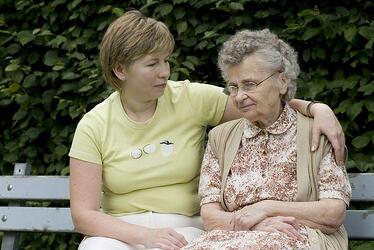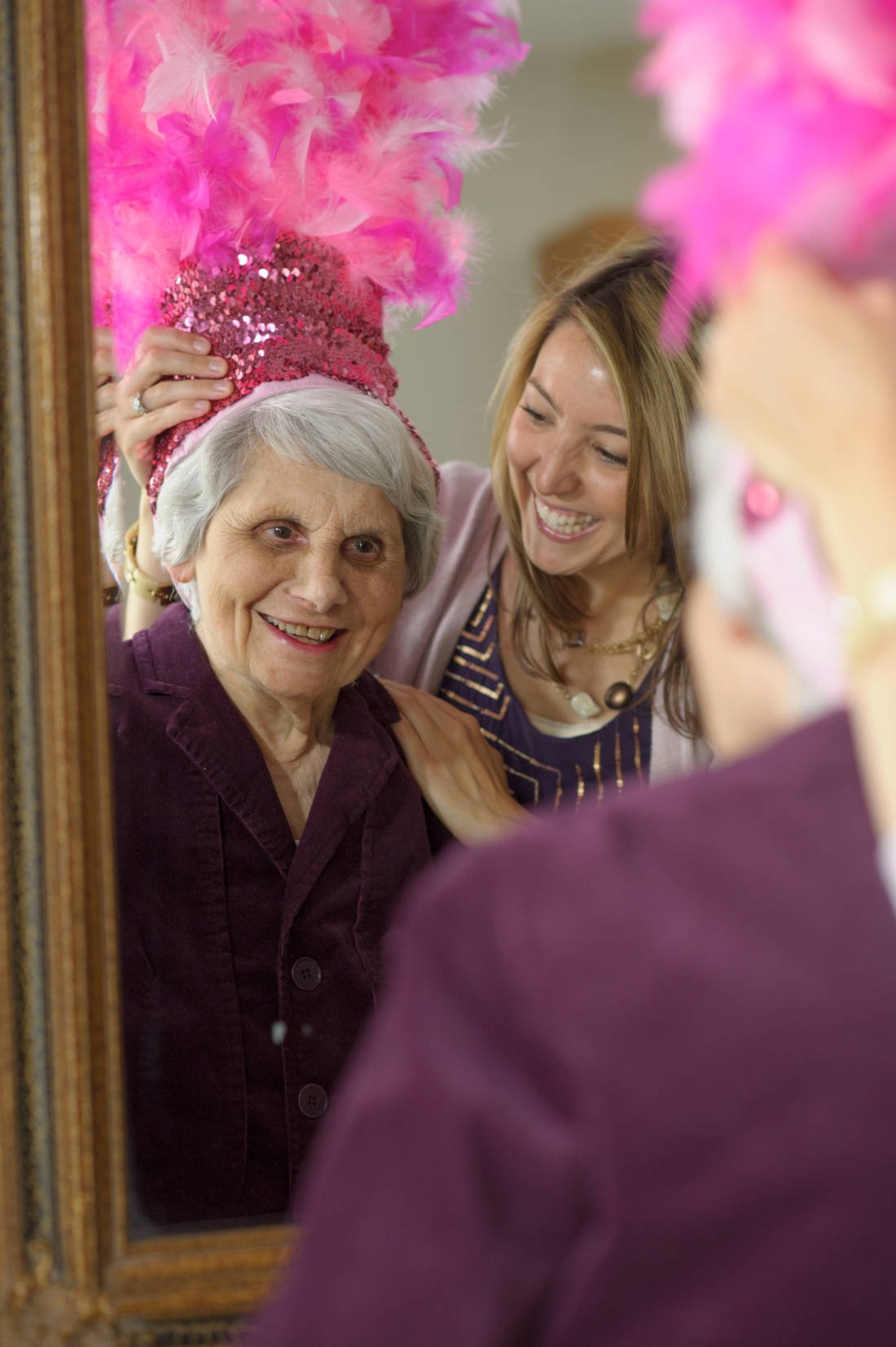Alzheimer's Disease: 10 Early Signs and Symptoms
Alzheimer's Disease | assisted living | alzheimer's care | Aging & Caregiving
 More than five million Americans are currently living with Alzheimer’s disease and this number is expected to skyrocket as the baby boomer generation continues to age.
More than five million Americans are currently living with Alzheimer’s disease and this number is expected to skyrocket as the baby boomer generation continues to age.
Alzheimer’s is now the country’s sixth-leading cause of death; every sixty-seven seconds another American develops the disease.
Because early diagnosis and treatment can be critical in minimizing the progression of the disease, the Alzheimer’s Association has compiled these 10 early warning signs.
10 Early Signs and Symptoms
1. Disruptive Memory Loss
While typical aging may involve occasionally forgetting appointments and names, one of the most prevalent early signs of Alzheimer’s is recurrent memory loss. If a loved one constantly forgets important names, dates and events -- particularly newly acquired information -- this may indicate more than age-related memory loss.
2. Concentration Challenges
Everyone makes an occasional mistake when balancing a checkbook or computing a tip, but people with Alzheimer’s disease may demonstrate significant changes in the ability to solve basic problems, such as tracking monthly bills or following simple recipes.
3. Difficulty with Familiar Tasks
People in the early stages of Alzheimer’s disease may experience newfound difficulties with even the most routine daily tasks, such as remembering the rules of a familiar card game or finding their way to the grocery store.
4. Tracking Time and Place
Forgetting what day it is, only to remember it later, is fairly typical in the senior years. However, confusion related to tracking the passage of time -- from days and weeks to seasons and years -- may indicate Alzheimer's. In particular, people with Alzheimer’s disease may not understand what's happening at any given movement or may be confused by why they’re at a particular place at a particular time.
5. Vision Problems
Changes in vision are common among seniors, but people with Alzheimer’s disease may experience more significant problems, such as reading difficulties and trouble with identifying colors, contrast and distances. These issues can interfere with driving safety and these symptoms should not be dismissed.
6. Conversation Struggles
If your aging loved one is frequently struggling when participating in conversations, this may be an early indication of Alzheimer’s disease. Other signs include verbal repetition, stopping mid-sentence, and calling known items or things by the wrong name.
7. Lost or Misplaced Things
Occasionally misplacing belongings is most often a typical age-related occurrence. However, if this becomes a recurring event and your loved one is unable to retrace his/her steps, it may be an early sign of Alzheimer’s disease. He/she may also put things in unexpected places and accuse people of stealing.
8. Changes in Judgment
Everyone makes a bad decision now and again, but people with Alzheimer’s disease may demonstrate significant lapses in judgment. And while all seniors are vulnerable when dealing with money, people with Alzheimer’s show increasingly poor decision-making abilities. Lapses in judgment may also carry over to personal hygiene and grooming.
9. Withdrawing From Usual Engagements
Avoiding social activities, work gatherings and favorite hobbies can be an early sign of Alzheimer’s. If your loved one is turning down previously enjoyed activities, he/she may be concerned about revealing other Alzheimer’s-related symptoms.
10. Mood or Personality Changes
Most older adults thrive on routines and can become frustrated or angry when their schedules are disturbed. However, people with Alzheimer’s disease can experience extreme feelings of anxiety, confusion, depression, and suspicion even under the least threatening conditions.
Key Takeaways
- Alzheimer’s disease causes behavioral, cognitive, and memory-related changes.
- Symptoms of Alzheimer’s disease can start slowly and gradually grow more severe.
- While age is a risk factor, Alzheimer’s disease is not part of normal aging.
- Because individuals may demonstrate one or multiple symptoms at varying degrees, make an appointment with a physician if you or a loved one has any of these signs.
- Early detection can help yield optimal outcomes through access to all available treatments.
- Early diagnosis can also help people with Alzheimer’s disease participate in the decision-making process regarding their own living arrangements, financial matters and medical care.
About Marissa Salvesen
My journey into the world of senior living began when I started working for United Methodist Homes in 2010. Starting as an Activities Director at one of our award-winning assisted and independent living communities and then transitioning to Marketing and Promotions Manager for UMH, I now work as the Manager of Mission Development, fostering the Mission and Values of our organization. I love sharing stories about the many ways we build meaningful relationships and enrich the lives of those we serve, and am proud to be part of building UMH’s 140-year legacy of caring. Wondering what makes our communities such special places to live and work? Connect with me and find out!

Our Blog is a 2016 Platinum Generations Award Winner! The Generations Award is an annual international competition for excellence in senior marketing recognizing professionals who have communicated to the 50+ Mature Markets.



